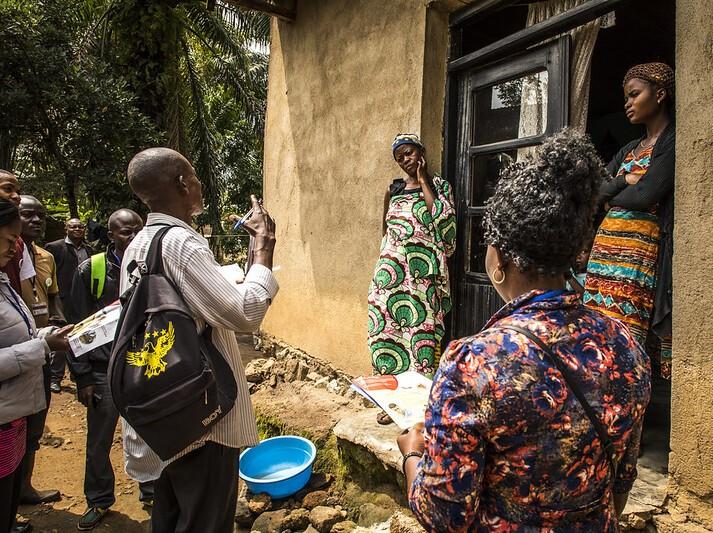Ebola cases in the Democratic Republic of the Congo (DRC) outbreak continued at a slow rate over the weekend and through today, and on the research front, new survey findings from people living in one of the outbreak's former epicenters shed new light on reasons behind community resistance.
New cases in ongoing hot spots
Eight new cases were reported since Sep 27, three of them today, according to the latest numbers reflected on the World Health Organization (WHO) online Ebola dashboard, lifting the overall total to 3,191. Outbreak responders are still investigating 425 suspected Ebola cases.
Three more people died from their Ebola infections, nudging the fatality count to 2,129.
The latest two daily updates from the DRC's multisector Ebola committee detailed locations for five of the most recent cases. They include two in Mandima and one each in Mambasa, Butembo, and Komanda.
The trickle of cases is consistent with a recent downturn in cases in the outbreak region, though the WHO has warned to that security problems in some areas, especially Lwemba in Mandima health zone, are hampering response operations, which could help fuel ongoing transmission.
Focus groups detail distrust
The survey centering on reasons behind community resistance was conducted in Butembo in November during a time of Ebola transmission. A researcher from Catholic University of Graben in Butembo and collaborators at the University of Alberta in Edmonton published their findings on Sep 26 in PLOS One.
To spark focus group discussions, the researchers used an 18-item questionnaire based on similar ones used during West Africa's outbreak in Guinea, where community resistance and episodes of violence also complicated the outbreak response.
Participants were a convenience sample of 670 adults from the region who were recruited by medical students at Catholic University of Graben. Those surveyed included clinicians, community members, and displaced persons.
Though most respondents were supportive of the Ebola virus disease (EVD) response, they provided eyewitness accounts of aggressive resistance to outbreak control steps, supporting media accounts. The main reasons for mistrust were similar to those that sparked pushback in earlier outbreaks. Reasons included perceived response inadequacies, suspected mercenary motives, and violation of cultural norms, such as traditional burial customs.
Most respondents had attitudes that supported control efforts, but 12% thought the Ebola virus was fabricated, 72% were mistrustful of the response, and 9% were sympathetic to violence perpetrators.
Fifteen percent said they wouldn't comply if there was an Ebola infection or death in the family.
Most survey respondents agreed that the outbreak would continue as long as the community wasn't engaged. And some health workers who participated said they were disillusioned by a lack of support and from feeling cut off from the outbreak response.
The researchers offered some recommendations, based on their analysis, including that international agencies should commit to a more sustained and broad public health approach, folding in issues that matter to the community. "The intense, vertical, and focused EVD response during this epidemic has not been well accepted in part because the community is unaccustomed to external aid and suspicious of disingenuous motives," the team wrote.
Also, they said that dialogue with community members should take place in the local language and trusted local experts should be highlighted in public health messaging.
See also:
WHO online Ebola dashboard
Sep 29 CMRE report
Sep 28 CMRE report
Sep 26 PLOS One abstract



















